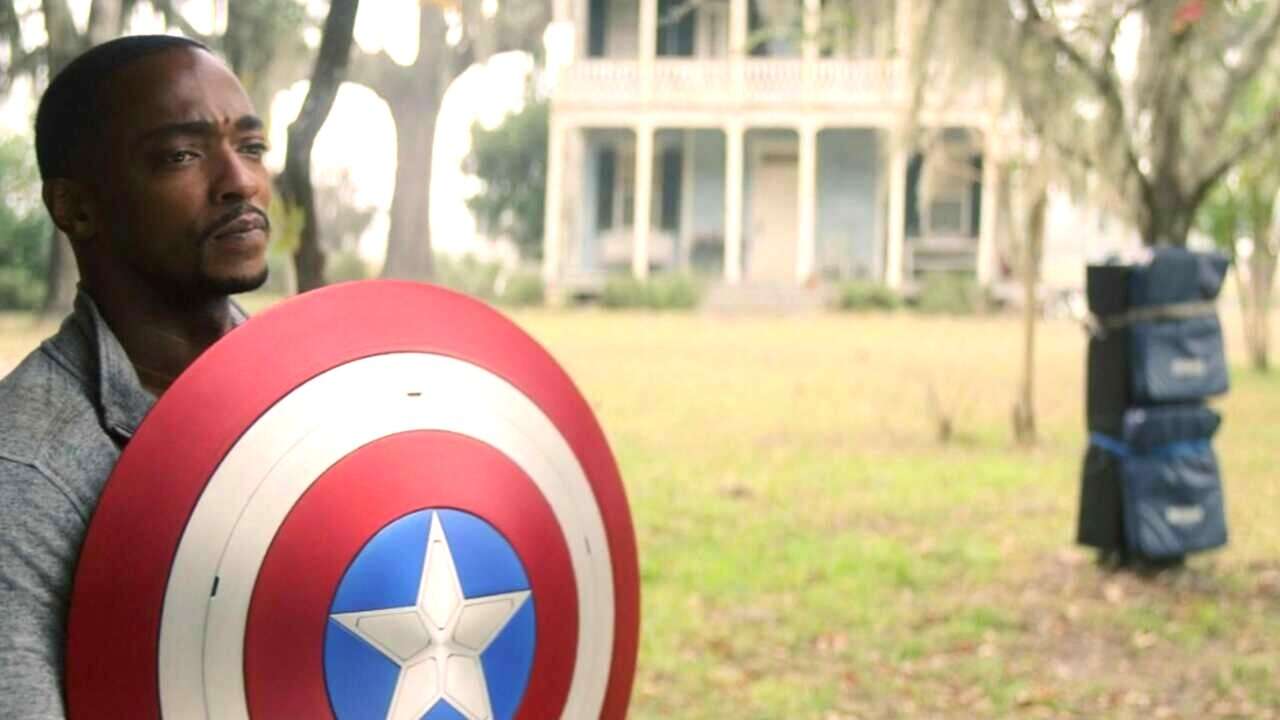When Spec Ops: The Line was released in 2012, military shooters were still at the height of their power. Just shy of five years on from Call of Duty: Modern Warfare, to make a military shooter during this Imperial Phase was typically presented as an objective search for authenticity draped in the flag of solemn respect for the troops, a dual approach designed to avoid uncomfortable questions around the genre’s obeisance to and glorification of the military-industrial complex.
In stark contrast to its contemporaries, Spec Ops refused to shirk uncomfortable questions. It takes for granted that it’s a bit f***ed up to enjoy video game violence. Then it goes a step further: It seems to actively despise its own existence. Over the course of its single-player campaign, Spec Ops: The Line is unwavering in its commitment to the idea that not only is the protagonist of a military shooter a psychopath, but that our demand for and enjoyment of them reveals something deeply ugly about our culture.
Developed by German studio Yager Development, who had previously made the sci-fi flight combat game Yager (2003), and published by 2K Games, Spec Ops: The Line tells the story of Captain Martin Walker, the playable character, and his two squadmates, Sergeant John Lugo and Lieutenant Alphonso Adams, a Delta Force team on a recon mission into the heart of sandstorm-devastated Dubai. They are attempting to make contact with Colonel John Konrad, commander of the 33rd Infantry Battalion, who had been leading relief efforts in the city until the storm severed all communication and the UAE government designated Dubai a “no man’s land.”Konrad’s name is an on-the-nose reference to Joseph Conrad, author of Heart of Darkness, the late 19th century novel that critiqued imperialism and provided the inspiration for the Vietnam War film Apocalypse Now.
Walker and company are sent to investigate after a radio message finally emerges from the dust-shrouded city: “This is Colonel John Konrad, United States Army. Attempted evacuation of Dubai ended in complete failure. Death toll… too many.” When they arrive, the trio find themselves caught up in a three-way struggle for power between Konrad loyalists, a splinter group of 33rd soldiers who mutinied against Konrad, and the CIA-backed locals trying to drive Konrad–and indeed every American–out of their city. What began as a straightforward rescue quickly becomes more complicated. As events evolve, and facts continue to slip from their grasp like sand between fingers, Walker, Lugo, and Adams try to remind themselves that they must stick to the mission. “Anybody think we should try talking to these guys again? I mean, we did come here to save them,” says Adams. But, gradually, as the bodies continue to pile up, inevitably they find themselves unable to discern what that mission is. “Man, we are way past that point,” replies Lugo.
As a third-person shooter, Spec Ops adopts many of the gameplay features of the genre. In this sense, it adheres to the formula and resists experimentation. Walker will stick to cover with a press of a button in much the same way as Gears of War popularized some years earlier. Similarly, you aim with left trigger and shoot with right trigger. Holding A sees Walker sprint, B vaults over cover, X hits enemies in melee range, and Y tosses a grenade. Squad commands are minimal and context-sensitive; you can tell Lugo and Adams to prioritize specific targets with the tap of a button, but otherwise they pretty much get on with the job of doing very little and leaving the shooting to you.
Mechanically, it must be said, Spec Ops: The Line is competent but not particularly interesting. Where it is notable, however, is in its narrative and in its critique of the broader medium. That’s partly what drew video game critic Brendan Keogh to write a book about it. In 2012, some months after the release of the game, he published “Killing Is Harmless,” a 50,000-word critical reading of Spec Ops: The Line. Keogh wrote it to explore how Yager questions why we enjoy video game violence and the way players can consider their own complicity in perpetrating virtual war.
“What I found interesting about Spec Ops wasn’t just what it said about video games and violence, but how it said it,” Keogh tells me over email, a decade later.
“It can’t really be boiled down to any one twist moment like BioShock’s ‘Would you kindly’ moment, but rather it’s in how the game systems, visual tropes, and character development slowly shift over the time. An action at the start of the game and the same action at the end of the game can feel radically different because of broader contextual shifts in the narrative and visual presentation.”
As Walker, Lugo, and Adams journey deeper into Dubai’s “heart of darkness” and their mission dissolves before their very eyes, they begin to fray. Physically, the three of them bear the scars of their experience. Blood stains, torn clothing, and deep wounds are depicted as permanent changes to their character models. Their physical actions become more ragged; melee attacks transform from swift knockouts to brutal pummellings. Likewise, the cool detachment of their early communications boils over into hoarse screams of “Reloading!” and streams of curse-laden epithets. By the end of the game, these men are entirely untethered, not only from their original mission but from reality itself.
“It was these gradual transitions that fascinated me about the game and which I wanted to capture,” explains Keogh. “It felt like the only way to do that was to narrate an entire playthrough in a way that drew attention to those subtle transitions and shifts in tone. I definitely didn’t have plans to ‘write a book about a videogame’ before I played it. It was just the right format to explore what I wanted to explore about that game.”
Spec Ops arrived at a time when commercial video games, from both major publishers and independent developers, were self-consciously reflecting on the nature of being a video game. Not just BioShock (2007) and its famous “Would you kindly…” line, but games such as Braid, The Stanley Parable, Nier, Far Cry 2, even Portal were exploring what player agency meant in a video game, its strengths and its shortcomings, and the types of experiences the idea engenders. Perhaps more than any of them, Spec Ops: The Line wanted to reject the concept of video games as power fantasy.

“Those games were really pushing against a very dominant mode of presenting video games in games culture and marketing that essentially boiled down to the customer or player is always right,” Keogh says.
“For decades, alongside this masculinizing of video game culture, video games became these power fantasies where ‘interactivity’ and ‘agency’ empower the player to be the most powerful agent in the world, to make meaningful choices, to save the world, etc. You see it shot through video game marketing in the 1990s and 2000s in particular. Games like Spec Ops, Bioshock, Stanley Parable, were a whole wave of games that essentially asked what if the player isn’t actually all powerful?”
Keogh posits that games are essentially about following rules and doing what you are told. Sure, you have freedom, as the marketing is always keen to emphasize, but it’s always a restricted freedom, the specifics of which that same marketing is less eager to detail. Spec Ops: The Line and the abovementioned games of that late ’00s and early ’10s era were pushing back on a normative way of thinking about game design and aesthetics that was really meaningful and valuable. But a decade later that work has been done.
“We kinda know that now,” says Keogh. “These days, it’s not nearly as exciting and revolutionary to suggest that maybe the player isn’t all powerful. Without considering the historical context, games like Spec Ops and BioShock almost seem a bit naff and basic in their critique.
“Since then,” he argues, “we’ve had a decade of independent and alternative gamemakers, not least of all the various queer devs working with Twine, who have radically upended what we thought we knew about how video games express ideas and how players and video games work together in different ways. A triple-A game going, ‘Gee, what if militaristic violent power fantasies are bad actually’ isn’t quite as provocative these days.”
Still, that shouldn’t diminish the work that was done. Replaying Spec Ops: The Line today, for all that much of its moment-to-moment action feels formulaic, it’s still shocking the extent to which the game wants the player to recoil from this idea of video game as power fantasy. At the time of release, a common criticism directed at The Line from reviewers and players was that the game’s critique of video game violence didn’t allow the player the option to not perform that violence.
But such a take only perpetuates the very idea The Line wants to criticize. It is not merely vital to the critique of video game violence that The Line is itself a relentlessly violent game, but it is utterly essential to the power fantasy critique that for the player there is no escape, no reprieve, no power to pause and select a different option. Other than turning the game off, of course.
While Keogh agrees that this criticism misses the point, he has sympathy for another common argument leveled against the game.
“A more persuasive critique to me was that telling the player they should feel bad for enjoying violence,” he says. “Or [telling the player] that they are ‘the real monster’ really just shifts the blame for these sorts of militaristic games existing onto the individual consumer when the publisher and the studio decided to make the military video game in the first place, right? It’s like an airline company blaming their passengers for climate change.”
This tension is most evident in the loading screens. As in any game, The Line’s loading screens contain a sentence or two of text to give the player something to do while they’re waiting for the next area to load. What start out as conventional gameplay tips (“Lugo’s sniper training allows him to dispatch long-range targets”) or basic plot details (“Rumors claim Konrad is still alive and hiding somewhere in Dubai”) give way to commentary on the game itself. During the latter half of the game, even the loading screens offer no relief from the horror and suffering:
“Dubai’s harbor was filled with sand when storms first wracked the city. The corpses were your doing.”
“Do you feel like a hero yet?”
“If you were a better person, you wouldn’t be here.”
Rather than merely scolding the player for doing the only things the game allows them to do, the loading screens perhaps also reveal some of Yager’s own frustration at having little to no choice about working on the project, something that Keogh felt he detected in conversations with members of the team.
“I think what’s fascinating is to consider the development context of the game. A new video game in the Spec Ops franchise was going to exist one way or the other. The publisher wanted it to! And this studio, Yager, had to make it to get the money to stay afloat.
“What’s fascinating about Spec Ops is you can feel the frustration of the developers themselves of having to make this basic military shooter. There’s an anger in it, a contradiction in how it hates itself. I don’t think it’s simply offsetting blame for the whole military-entertainment complex onto players. I think it’s a collective cry of frustration from a team of developers for having to make a game like this in the first place. It’s so rare that the personality of the developers is so visible in a triple-A game, and the way those contradictions and emotions feel baked into the very design of the game is so fascinating to me.”
Midway through Spec Ops: The Line, there’s a now-infamous scene where Walker, Lugo, and Adams sneak up on a camp where they are heavily outnumbered by the 33rd. They take out a guard and discover that his lookout houses a launcher and supply of white phosphorous. This exchange follows:
Adams: “This might help.”
Walker: “Fine. Set it up.”
Lugo: “You’re fucking kidding, right? That’s white phosphorus!”
Walker: “Yeah, I know what it is.”
Lugo: “You’ve seen what this shit does…”
Adams: “We might not have a choice, Lugo.”
Lugo: “There’s always a choice!”
Walker: “No. There’s really not.”
There really isn’t a choice. You can ignore the white phosphorous and open fire on the soldiers below using conventional arms, but their numbers keep replenishing while your ammo does not. Eventually you will die if you don’t use it.
So you flick on the laptop connected to the targeting drone and watch the muted, black and white feed from above. You move a targeting reticule around the screen, pull the trigger and Walker instructs Adams to fire the launcher. A moment later white clouds appear on the screen, accompanied by the shouts and screams of the victims below. This view doesn’t change for the length of the two-minute sequence. You can’t look up or look around or close the laptop.
It’s a scene reminiscent of the AC-130 mission from Call of Duty: Modern Warfare. However, while that game chose to focus on the cold detachment of a war fought at the distance of a drone, all-too-easily interpreted as approval for the professional and efficiency of the modern American military, The Line offers no such relief. Instead, it rubs your face in the very atrocity you’ve wrought.
As the scene continues you eventually notice that the focus has shifted subtly, or perhaps you only just notice it for the first time, but you realize that you’re no longer looking at just targets on a screen. You’re looking at Walker’s face reflected back off the monitor. You’re staring into his eyes as you target another group of the 33rd in the camp below and calmly tell Adams to kill them in a cruel and horrifying manner. You realize you’re staring at yourself.
“We need to keep moving,” Walker says after the smoke clears on the camp and the charred bodies of dozens of civilians caught in the white phosphorous rain are revealed.
Walker’s fragile mental state continues to deteriorate as he closes in on Konrad, still perhaps clinging to the belief that this one man was responsible for every horror that has happened since arriving in Dubai. Hallucinations, dream sequences, repeating scenes pile up until it’s impossible to discern what’s real in this completely unreal video game.
“None of this would have happened if you’d just stopped,” Konrad tells Walker near the very end. But they didn’t stop. They couldn’t stop. Yager couldn’t stop. And neither could you.
Source: Gamespot





















